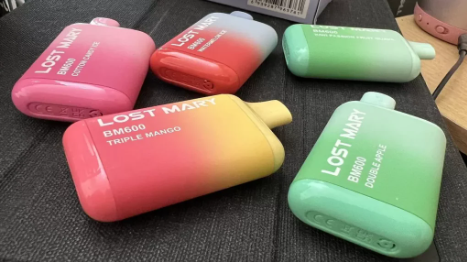In the latest legal drama shaking up the vape industry, a new class-action lawsuit has been filed against one of the biggest players in the game, accused of orchestrating a scheme to manipulate prices and dominate the U.S. market. The company in question is none other than SMOORE, a global powerhouse in vape technology and the leading manufacturer of cartridge-based cannabis vape devices. The lawsuit, filed by an Arizona-based cannabis retailer, claims that SMOORE and its U.S. distributors have been violating federal antitrust laws for nearly a decade.

The lawsuit, which was filed on February 11, 2025, in the Northern District of California, could potentially mark the beginning of a long and intense legal battle. SMOORE International, widely recognized for its CCELL vape technology, is accused of conspiring with its American partners to rig the vape market, stifle competition, and keep prices artificially high. For years, these alleged actions have impacted the prices of cannabis vapes, specifically in the United States, raising questions about anti-competitive behavior and the company’s market dominance.
The Legal Wrangling
Earth’s Healing Inc., the Arizona cannabis retailer behind the class action, claims that SMOORE and its network of U.S. distributors have been involved in an elaborate price-fixing scheme, which goes all the way back to 2016. The lawsuit accuses SMOORE of secretly signing distribution agreements that prevented healthy competition and artificially inflated the prices of vape products across the market.

According to the complaint, SMOORE has been running a devious market manipulation plan for almost ten years—controlling the price of its vape products through secretive agreements and tactics that are in direct violation of the Sherman Antitrust Act. The retailer claims that SMOORE and its U.S. distributors have been operating in a coordinated manner, ensuring that prices remain fixed, creating an environment where no “worthy competitors” could break through.
One of the most serious accusations is that SMOORE created a cartel-like arrangement with its American distributors. This “cartel” was allegedly set up to ensure that competing businesses couldn’t thrive, while keeping prices at an unusually high and super-competitive level. The lawsuit specifically references “horizontal agreements,” which are deals between competitors to keep market prices fixed and eliminate the possibility of new competition.
This class action isn’t just about some backroom deals and shady business practices—it’s a serious challenge to the power of SMOORE and its grip on the U.S. cannabis vape market. If the case proves successful, SMOORE could be facing millions, if not billions, in damages and possibly a full market restructuring.
The Role of Distributors
While SMOORE itself is at the center of the storm, the lawsuit also targets four major U.S. distributors who allegedly helped enforce this scheme. These distributors, listed in the case as authorized partners of SMOORE, are said to have participated in fixing prices, sharing confidential customer and pricing data, and penalizing competitors.
The four U.S. distributors named in the suit are:
- Jupiter Research, based in Tempe, Arizona, a subsidiary of Tilt Holdings.
- Greenlane Holdings LLC, headquartered in Delaware and listed on NASDAQ as GNLN.
- CB Solutions LLC, operating in Everett, Washington, under the name Canna Brand Solutions.
- 3Win Corp., based in Las Vegas, soon to rebrand as Serewin Corp.
These distributors are accused of conspiring with SMOORE to fix prices and eliminate market competition. The lawsuit goes further to claim that these companies exchanged pricing data on a monthly basis, preventing any of them from undercutting the others. If a distributor failed to comply with these agreements, they allegedly faced steep penalties and even had deposits from cooperative agreements seized.
The Legal Landscape
What makes this case particularly intriguing is the international aspect. SMOORE is a giant in the global vape market, but its actions in the U.S. are coming under serious scrutiny. One of the big questions that has yet to be answered is how U.S. courts will handle a case involving a foreign company in a position of such dominance. The lawsuit could trigger a new chapter in how American courts treat foreign companies that hold significant market power, particularly in the rapidly expanding cannabis space.

Moreover, this lawsuit is only one of many legal issues SMOORE has faced in recent years. Back in 2021, SMOORE tried to block several U.S. companies from importing products that allegedly infringed on its vape device patents. However, in 2023, the U.S. International Trade Commission (ITC) ruled against SMOORE, stating that the company did not hold valid patents, a massive blow to its intellectual property claims.
In addition to these patent issues, SMOORE is now fighting a countersuit filed by ACTIVE, a U.S.-based e-cigarette company, which claims that SMOORE has used “abusive litigation” tactics to “illegally restrict competition” in the vape market. ACTIVE is seeking nearly $200 million in damages from SMOORE, making it clear that the company is in for a rough ride ahead.
Market Control: From Market Leader to Target
SMOORE’s U.S. market dominance has been staggering. The company has controlled nearly 80% of the cannabis vape market since it first entered the space in November 2016. But as more players have entered the market, SMOORE’s hold on the industry has weakened, with its market share dropping to around 50-60% by 2023.

This significant decline in market share is a reflection of the increasing competition SMOORE faces. Newer, innovative brands are challenging SMOORE’s dominance, offering cheaper and possibly better alternatives. That shift in the market has sparked increased tensions, making SMOORE’s legal troubles even more explosive.
The Earth’s Healing lawsuit, now targeting all U.S. cannabis businesses that have bought SMOORE products through its authorized distributors since 2016, is asking for unspecified damages. If successful, the case could lead to an injunction that would prohibit SMOORE and its distributors from engaging in anti-competitive practices.
This legal confrontation is poised to reshape the landscape of the cannabis vape industry and could have broader implications for the larger vape market as well.
What’s Next?
As this legal battle progresses, all eyes will be on how it influences the ongoing relationship between the U.S. and Chinese companies operating within the cannabis sector. The outcome of this case could set a significant precedent for how antitrust laws are applied to international companies operating in U.S. markets, especially when it comes to the highly lucrative cannabis and vape industries.
For now, the lawsuit’s trajectory remains uncertain, but one thing is for sure: the battle over vape market control is far from over. With the increasing scrutiny of SMOORE’s business practices, we may soon see even bigger companies—both foreign and domestic—looking over their shoulders.
Will SMOORE be able to outlast this legal storm, or will the company be forced to revise its practices in the face of mounting legal and public pressure? Only time will tell. But one thing is clear: the U.S.-China economic showdown is just beginning, and it’s not limited to tech or trade anymore—it’s entering the vape game.

